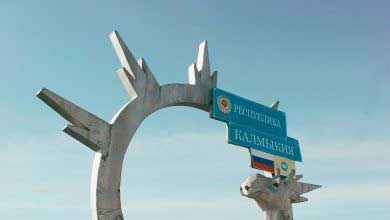
I came to Ukraine with Czech Radio reporter Martin Dorazín at the end of January 2022. War hung in the air, but few had any idea what form the conflict would take. We didn’t know either. When the war started, it took our breath away. The invasion surprised not only us, but also the Ukrainians and the entire world.
I’ve seen a lot of wars, but not all of them have had such a clear aggressor and victim. Not every one was as transparently black and white as this Ukrainian one is.
It was admirable how quickly the Ukrainians got together. Hundreds of thousands of volunteers signed up for the army; volunteer organizations were formed to help the soldiers. People have sewn camouflage nets, brought food to the front, raised money for weapons and night vision devices, helped out in hospitals, transported refugees. I know a number of men who, on their own, drive their cars and go to dangerous areas, to the villages at the front, to evacuate the last inhabitants. After meeting these guys, I don’t know who else I could possibly call a hero.

But the words stop coming to me when I see villages levelled to the ground. When I see whole families who have fled from Mariupol arriving in Zaporozhye in cars peppered by shrapnel. When I visit a hospital filled with children wounded by Russian ammunition. Words fail me when I talk to a woman who buried her husband in the garden outside her house after he was shot by the occupiers, just a week before the village was liberated by the Ukrainian army. I don’t know what to say when a woman tells me how her husband used to go to the next village to get bread, which he then distributed to indigent neighbors.
Sometimes I ride with volunteers like him; they also bring bread for those who can no longer afford it. We go to shelled villages and bring water and bread to their inhabitants. They live in cellar they now call “bomb shelters”. For several months now, they have had no electricity, no gas, no sources of water.
Not everyone loves Ukraine. I also meet those who are waiting for the arrival of the Russian world. Instead, they will receive Russian bombs. The bombs do not distinguish between “Russian patriots” and “Ukrainian nationalists.”
Then one day they show you a mass grave. And another, and one more. I’m not a writer, I’m a photographer, and I try to say a lot with my photos. But I will never be able to explain to anyone what a mass grave smells like, either in pictures or words or in any other way. There is something inappropriate about the smell of victims. Everyone wants to belong to someone, even after death. They don’t want to stink, but rest in peace. This is what the dead need, and not only in this war. Instead, they are found buried in makeshift graves in the fields and woods, under nameless crosses, sharing a grave with dozens of other victims.
At the cemetery, I meet a soldier with some flowers that he wants to place on his friend’s grave. But he gets completely lost among the fresh graves. There are so many here! He doesn’t know which one is his friend.
As quietly as possible I try to photograph the funeral of a man who was the father of three children. The family cry. The youngest is twelve.
I have no words to answer the old woman who asks me: “Are you a journalist? When will this hell end, please?”

















This is a personal and painful account of bearing witness in the Ukraine. As always, Iva’s photography is layered and imbued with meaning. Her essay is both economic with words, and utterly heart-wrenching. Iva shoots behind the headlines, documenting the every-day of people trapped in-between the chaos of conflict and the remnants of the comfort of home. For those in her viewfinder, there is no realy closure, just the brief respite of being seen, being heard, above the fracas of mortars and gunshots, screaming and wailing, and the deathly silence of waiting. I am in awe of Iva’s ability to continue.
Thank you Dr.Heather